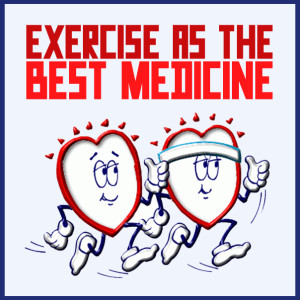Cognition affects memory, attention, concentration, judgment and evaluation, and so it is no surprise that deterioration of these facilities can be extremely disturbing to patients and their families. Cognitive decline is a natural part of aging, and results from decreased white matter integrity over time. As the average lifespan continues to increase, dementia grows as a source of morbidity. Pharmacotherapy for dementia is still in its infancy, and while the commonly prescribed drugs have shown efficacy in slowing the progression of dementia, they do little to improve patients’ cognition. Thus, preventative steps to maintain cognition in the elderly are imperative. Exercise can play an important preventative role in this process; in addition, research has shown it to have the potential to reverse cognitive decline — an outcome that still eludes traditional pharmacotherapy.
What types of exercise are best for cognition?
Both aerobic and resistance training have been associated with enhanced cognition, but they enact their effects through different mechanisms. During acute periods of exercise, the CaM-K pathway is activated, while long term exercises show activation of the MAP-K/ERK system. Multiple randomized control trials of older adults have concluded that resistance training can improve short term memory in older adults, especially at higher levels of resistance. Another randomized control trial showed that resistance training improves executive functioning as compared to exercises focused on balance and tone. The same study further showed that exercising twice per week is significantly better than once per week. A third study showed that the greatest benefits are noticeable in visuospatial tasks in the elderly, while another trial demonstrated an association between aerobic activity and enhanced cognition, as well as increased cerebral white matter integrity.
These studies show substantial evidence that exercising in the elderly improves cognition. These benefits have been shown to extend across all ages. Evidence suggests that physical activity in mid-life results in larger brain volumes at older age. Furthermore, starting early will make it easier to continue exercising later in life — recall the old adage: “You don’t use it, you lose it!”
In my undergraduate years, I once volunteered to be an EMT at a seniors Olympics event. I was in awe of the physical fitness and enthusiastic attitudes of all participants. After watching one 82-year-old man run an 8-minute mile, I had to approach him and ask his secret. His simple reply was, “I just never stopped — I’ve run a mile every day for as long as I can remember.” Needless to say, I was inspired, and have shared his words with anyone who fears they are too old to exercise.
As medical students, we often decrease exercising — or even stop entirely — due to increased academic workload. While there’s no need to train as much as when you were a high school or college athlete, it’s important to maintain an active lifestyle throughout medical school, residency, and as a physician. Whether by going to the gym a few times a week, choosing the stairs instead of the elevator, shoveling the snow in the driveway, or doing sit-ups and planks during study breaks, physical activity will help clear our minds, improve our cognition, and maintain our ability to engage in physical activity at later ages. And when your elderly patient asks you whether or not they can still exercise, you can be a living example of the importance of doing so.
The further I progress in my medical training, the more passionately I believe that exercise is the best preventive medicine. In this column, I share research regarding exercise as medicine, ways medical students can incorporate exercise into their daily routines, poetry on positive exercise experiences, and highlights on how doctors in the community are using exercise as a means to treat their patients.




